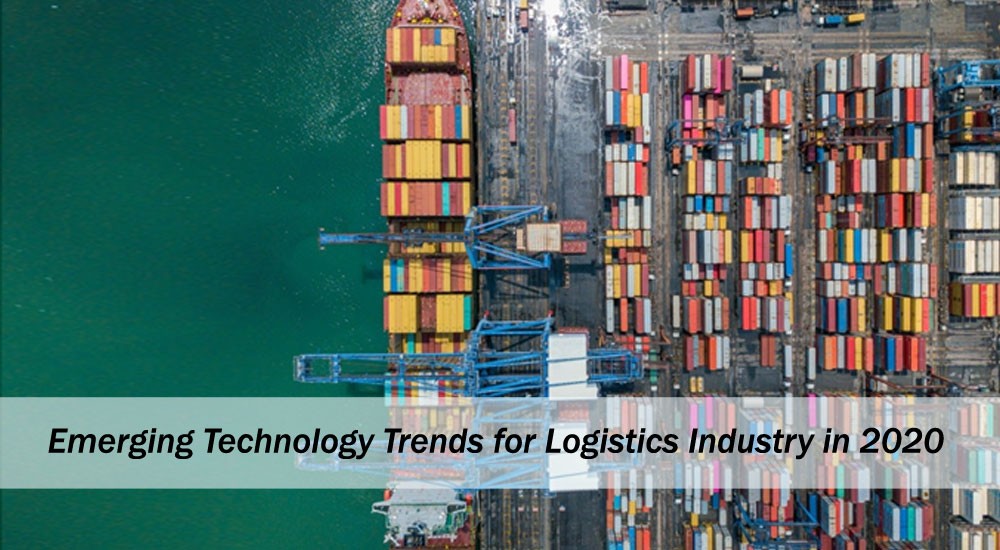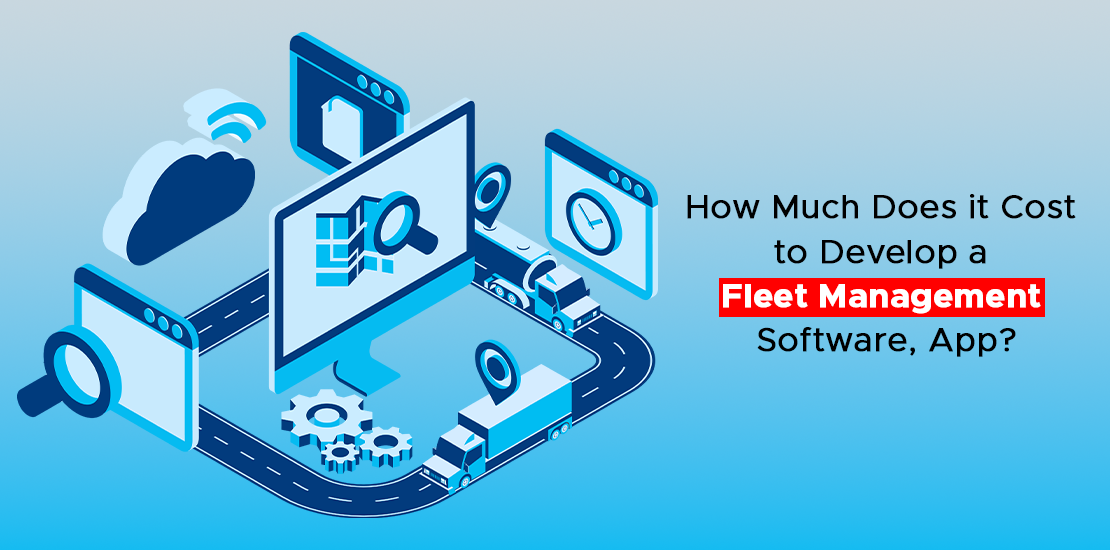- July 2, 2020
- Posted by: Admin
- Category: Technology

Innovation developments are causing huge waves of technological progress across different industries and organizations, and logistics and the supply chain industry might be one of the most affected divisions. The past years have seen massive headway for the logistics industry in regions like artificial intelligence, augmented intelligence, analytics, and robotization, to give some examples.
Challenges of the Logistics Industry:
These advancements have developed quicker than any time in the recent past while new companies with even more up-to-date arrangements and advancements keep springing up at a fast rate. However, connected to these advancements are new demands and norms, driving logistics organizations to either adjust or fall behind. Much pressure originates from clients as people and companies, all of who are requesting their items or administrations come quicker and less expensive than before. But this is not the only concern, globalization, global economic wars, and recessions have added to the difficulties of the logistics industries compelling them to adopt certain trends to fight these challenges.
Below are some of the top emerging technology trends that have been discussed:
Artificial Intelligence and Augmented Reality
According to several researchers, (AI) is better at foreseeing results and making analytical predictions than independent human comprehension. AI has been dominating the logistics industry for quite some time now. AI has completely revolutionized the logistics industry. Some of the AI-inspired, already integrated practices are
- last-mile delivery robots
- sustainability solutions
- warehouse automated picking systems
- predictive optimization software, etc
Artificial intelligence joined with MI helps organizations to be proactive in managing order variations. For instance, AI-based estimating arrangements permit organizations to make decisions regarding logistics procedures and discover approaches to lessen working expenses. Self-driving AI and brilliant road technologies are influencing a positive move toward delivery administration mechanization.
Predictive Analysis:
AI-based programming answers for accurate predictions regarding customer demands, price estimates, and smooth flow of the chain and procedures, to the retail businesses. The product gives modules to chance evaluation and request estimating to computerize process choices and control operational conditions. The AI upgraded stage gives devices to gather and coordinate procedure information continuously. Thus, supervisors are well prepared to give noteworthy bits of knowledge about item renewal.
Optimized Operations:
AI-based Optimization Software permits organizations to improve their logistics operations at less cost. AI optimizes static and dynamic transportation routes by understanding vehicle steering and related difficulties. Also, the product underpins the dynamic of armadas after some time by foreseeing conditions, for example, requests, climate, and traffic by utilizing AI procedures. The arrangement additionally advances workforce necessity and computerizes redeployment.
Digital Twins:
Computerized twins are potentially one of the most energizing logistics innovation patterns to watch out for in 2020. Many supply chain experts know that the computerized models are no match for their original counterparts.
Merging Of Physical And Computerized Worlds:
Displaying in its current state doesn’t take into account how parts wear out and are supplanted, how exhaustion collects in structures, or how proprietors make alterations to suit their evolving needs. Be that as it may, advanced twins innovation is changing this unequivocally: Now, physical and computerized universes can be merged into one, accordingly permitting us just to draw in with the advanced model of a physical item or part simply like we would with their physical partners.
Uses Of The Digital Twins:
The potential use cases for computerized twins in logistics are immense.
In the shipment segment, digital twins can be utilized to gather items and bundle information and utilize that data to recognize possible shortcomings and repeat patterns to improve future activities.
Distribution centers and offices can likewise utilize the innovation to make precise 3D models of their focuses and examination with format changes or the acquaintance of new hardware with seeing their effect, chance free.
Besides, logistics center points can make advanced twins and utilize those to try out various situations and increment proficiency.
Delivery systems could utilize the innovation to give continuous data that will improve conveyance times and further guide independent vehicles in their courses.
It will be intriguing to perceive what other effective logistics use cases create throughout the following year.
Sustainable Solutions:
Organizations wherever are paying attention to buyer interest in greener items and procedures. Exploration shows that items advertised as sustainable accounted for half of the growth of the buyer-bundled merchandise (CPG) showcase somewhere in the range of 2013 and 2018. Hence, the world’s supply chains are turning out to be round as opposed to straight. For example, makers are seeing approaches to improve item life span and the simplicity with which they can recuperate, fix, and exchange products.
Reduction of Plastic Use:
The round economy likewise impacts transportation and bundling decisions. Governments all through the world are taking steps to cut waste from flexible chains and lift reusing and reuse for regularly utilized items. European Union part nations should now reuse half of their bundling waste. In California, organizations can’t utilize plastic packs and should reuse 25% of their plastic compartments. In Japan, organizations must reuse all bundling materials. One may decide to take a gander at these guidelines as a weight. Be that as it may, reusing items for more, instead of purchasing new ones, give money-related advantages just as natural ones.
Automation:
One report predicts a large advancement in digitization and automation by 2024. Unemployment will make it more difficult to discover and hold talent in logistics and supply chain which will make automation crucial for future freight forwarding. As the freight forwarders are responsible for carrying out all the logistics responsibilities from order fulfillment to the product’s safe delivery, it would be necessary for them to automate certain logistics operations not only to reduce errors but also to improve the quality of services.
Warehouse Automation:
Distribution center mechanization builds effectiveness, speed, and efficiency by lessening human intercessions. Pick-and-spot innovations, for example, mechanized guided vehicles (AGVs), mechanical picking, robotized capacity, and recovery (ASRS), and put-divider picking decrease blunder rates and expands distribution center profitability. Distribution centers require a mix of productive mechanization advancements to control their operational logistics costs.
Self-Driving Vehicles:
Self-driving vehicles improve vehicle security and convey products securely by taking out human mistakes while driving. They increment the effectiveness in the first and last-mile conveyance as they are intended to work the entire day and throughout the night. Also, self-ruling vehicles improve eco-friendliness by utilizing platooning procedures for long stretch courses, diminishing roads turned parking lots, and advancing travel courses by exploiting AI-upgraded innovation.
Cloud Computing and the Internet of Things:
Cloud-based SaaS answers for coordination organizations take into account pay-per-use models that require low capital ventures. This limits the hazard and cost of keeping up the IT framework.
Cloud-Based Logistics:
Cloud-based logistics operations additionally address correspondence leaps and permit organizations to team up and securely share information. Moreover, cloud incorporation permits information assortment from the executives’ frameworks to dissect general strategic procedures. At last, cloud-coordinated coordination offers widespread openness and isn’t kept to any physical space.
Internet of Things:
The Internet of Things is an association of physical gadgets that screen and move information using the web and without human mediation. IoT in coordination upgrades permeability in each progression of the supply chain and improves the productivity of stock administration. Incorporating IoT innovation into the coordination and supply chain operations improve and empower effectiveness, straightforwardness, continuous permeability of merchandise, condition observing, and armada the board.
Blockchain
Blockchain offers security through an undeniable decentralized record framework and addresses squeezing detectability and related difficulties. This carries the straightforwardness of exchanges to the whole logistics process. Additionally, savvy contracts dependent on blockchain innovation take into account faster endorsement and freedom by lessening the preparation time at checkpoints.
Smart Contracts
Blockchain stage that improves installment forms utilizing its World Trade Logistics (WTL) smart contract framework. WTL savvy contracts empower B2B installments and forestall extortion by giving an unchanging record of everything being equal. WTL’s keen agreements help in limiting money vacillation costs, notwithstanding taking out the expenses of cash change.
Real-Time Tracking
Blockchain innovation can help improve the tracking of freight from start to finish of the transporting process. The stage permits all partners to follow shipment areas at each progression of its excursion. The stage additionally refreshes data concerning the evaluated conveyance times utilizing scrambled open records. The copies of archives are transferred into the stage after the conveyance is finished, along these lines expanding the permeability and straightforwardness of products in travel.


